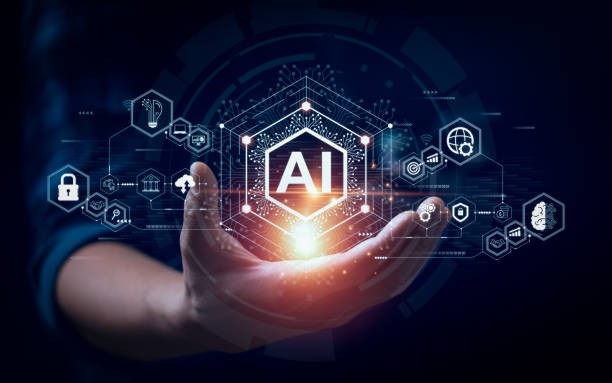Artificial Intelligence (AI) has taken the global stage by storm, and India is no exception. With the fourth industrial revolution underway, AI is driving significant transformation across various sectors in India. From healthcare to education, AI’s influence is reshaping the landscape. In this article, we will explore how AI is revolutionizing key industries, the policies driving its growth, and the challenges India faces in adopting this technology.
AI in Healthcare: One of the most significant impacts of AI in India has been in the healthcare sector. AI-driven diagnostic tools and medical imaging have allowed doctors to provide more accurate diagnoses, especially in underserved rural areas. Startups like Niramai are utilizing AI-based thermal imaging to detect early-stage breast cancer, an innovation that’s both cost-effective and scalable. Telemedicine platforms like Practo and 1MG leverage AI to offer virtual consultations, prescription refills, and medical advice, making healthcare accessible for millions of Indians.
Post-pandemic, AI-enabled solutions have been crucial in managing the country’s healthcare needs. AI models are helping predict the spread of diseases like COVID-19, optimizing resource allocation, and assisting in vaccine distribution. Moreover, AI chatbots are providing basic healthcare information, easing the burden on overworked healthcare professionals.
AI in Education: Education is another sector where AI is making waves in India. Personalized learning platforms powered by AI are revolutionizing how students interact with content. Companies like BYJU’s and Unacademy use AI algorithms to create adaptive learning paths, offering students a customized experience based on their strengths and weaknesses.
These AI-driven learning platforms are particularly beneficial for students in rural areas, where access to quality education is often limited. AI tools are helping bridge the gap by offering tailored lessons, real-time feedback, and even AI-based tutors who can assist students with queries.
The government’s emphasis on digital education under the Digital India initiative has further propelled the adoption of AI in the classroom. Schools and universities are now experimenting with AI-based tools to assist teachers in assessing student performance and personalizing curricula.
Government Policies Supporting AI: India has recognized the potential of AI and is laying the groundwork to ensure it becomes a key player in the AI revolution. NITI Aayog has launched the National Strategy on AI, which focuses on leveraging AI for inclusive growth across sectors like healthcare, agriculture, education, smart cities, and infrastructure.
The government is also working on creating AI research institutes, like the Centre of Excellence for Artificial Intelligence, which focuses on building AI capabilities within the country. AI has also been included in the National Education Policy to prepare the next generation for AI-driven careers.
Additionally, India is collaborating with countries like Japan and the U.S. on AI research and development projects. However, India still faces challenges in implementing AI policies at scale due to its diverse population, lack of infrastructure, and data privacy concerns.
Challenges in Adopting AI: Despite the government’s push, India faces significant hurdles in fully integrating AI into its ecosystem. One of the main challenges is the lack of skilled professionals in the AI space. While demand for AI-related jobs has skyrocketed, there’s a shortage of trained engineers and scientists who can fill these positions.
Moreover, infrastructure limitations like inconsistent internet connectivity, especially in rural areas, pose challenges for AI adoption. The absence of robust data collection frameworks and concerns around data privacy and cybersecurity also hinder AI’s growth in India.
India’s economic disparity adds another layer of complexity. While urban centers like Bengaluru and Hyderabad are becoming AI hubs, rural areas are lagging in terms of both infrastructure and education, creating a divide in AI adoption.
The Road Ahead for AI in India: Despite these challenges, the future of AI in India looks promising. With AI poised to contribute up to $15.7 trillion to the global economy by 2030, India is positioning itself as a global hub for AI development. The increasing adoption of AI-driven solutions across industries, along with government support and international collaborations, will ensure that India plays a vital role in shaping the future of AI.
To achieve its full potential, India will need to invest in skilling its workforce, improving digital infrastructure, and creating a robust regulatory framework that balances innovation with privacy concerns.
Conclusion: AI is no longer just a buzzword in India; it’s a driving force behind transformative change in industries like healthcare and education. With supportive government policies, emerging startups, and international collaborations, AI has the potential to solve some of India’s most pressing challenges. However, overcoming hurdles like skill shortages and infrastructure limitations will be key to ensuring AI benefits are felt across the nation.
